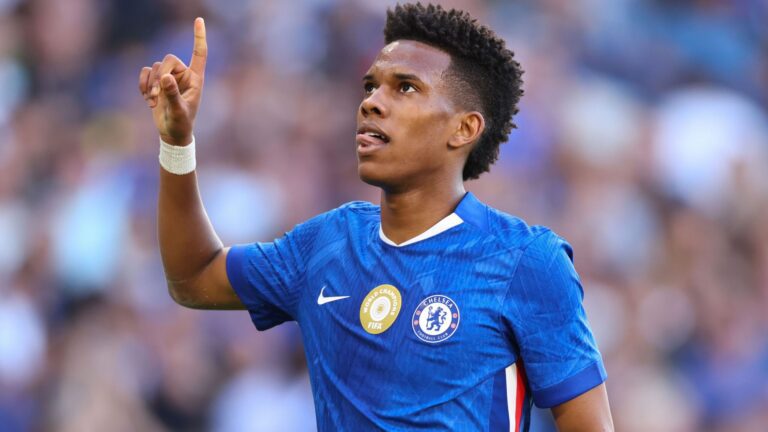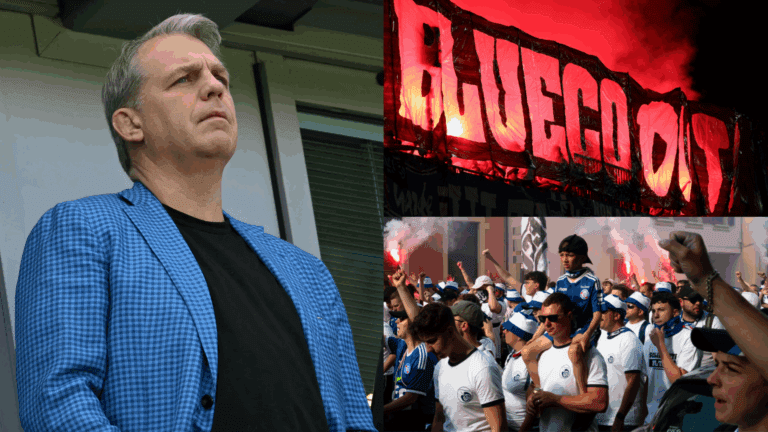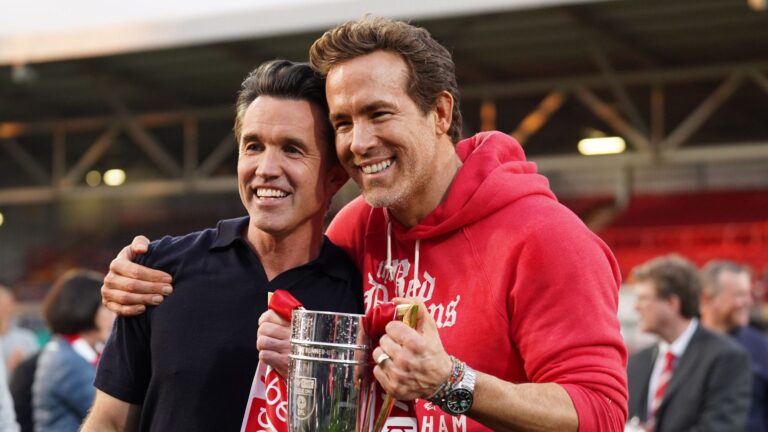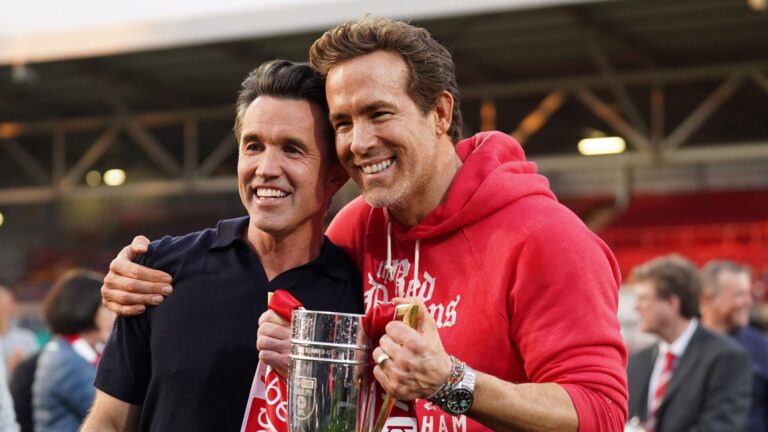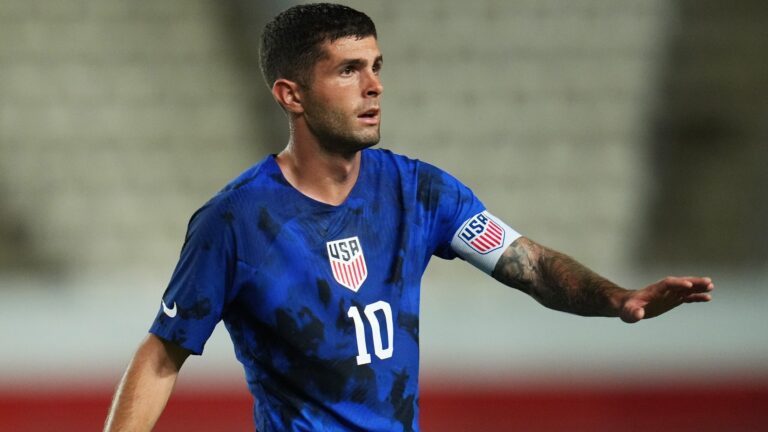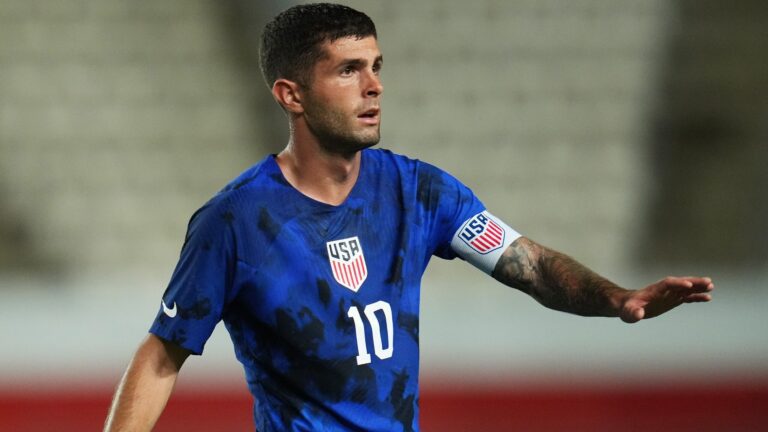Strasbourg Ultras Escalate Battle Against Chelsea’s Ownership Grip
In a growing conflict that highlights the tensions in modern football ownership, Strasbourg ultras are voicing strong opposition to the influence of Chelsea‘s owners. This unrest stems from the acquisition of a majority stake in the French club, raising concerns about autonomy and the future of traditional fan-driven football.
- BlueCo holds a dominant share in Strasbourg
- Supporters express deep dissatisfaction with the arrangement
- Diehard fans release a heated declaration at the season’s outset



Ownership Dynamics and Player Transfers Between Clubs
Back in June 2023, Chelsea’s proprietors gained a controlling interest in the Ligue 1 side Strasbourg, sparking a wave of strategic moves between the teams. This setup has led to Chelsea temporarily transferring several athletes to the French outfit, such as Mamadou Sarr, Kendry Paez, and Mike Penders, in an effort to nurture talent across their network.
Hostility from the Fanbase Despite Recent Successes
Notwithstanding these developments, elements of Strasbourg’s fan community have reacted with significant resistance to BlueCo’s involvement. Even after achieving a respectable seventh position in the league last season, which earned them a spot in the Europa League, resentment lingers. The club has invested heavily during the summer transfer period, yet this hasn’t eased the underlying frustrations, as demonstrated by the latest outcry from the Ultra Boys 90 collective just before the new season kicked off.
Criticism of Multi-Club Ownership Models
In their recent announcement, the Ultra Boys 90 group lambasted the club’s leadership, arguing that the transfer activities blatantly show Racing is no longer operating based on its own priorities. Instead, they’ve described it as a reckless pursuit where Chelsea dictates terms, eroding Strasbourg’s self-governance in the process.
This critique extends to the broader implications of shared ownership structures, which they view as a harmful approach that reduces storied teams to mere components of an international asset pool-a trend that’s gaining momentum globally. With recent data from football analytics firms indicating that over 20 multi-club models now exist across Europe, up from just a handful in 2020, advocates are pushing for regulatory changes to curb potential exploitation and preserve club identities.
The group champions a vision of football that’s deeply local and community-oriented, fueled by passionate supporters and rich traditions. They’re resisting what they see as an attempt to standardize clubs like generic chains, drawing parallels to how global corporations homogenize local businesses. While the team’s current performance might look promising, the Ultra Boys emphasize that their campaign is about long-term values, not just immediate on-field results at Racing.
The gravity of these ownership issues, they assert, threatens the essence of authentic football, which is fading under corporate pressures. As a result, the group vows to keep challenging the pitfalls of multi-club arrangements and any external meddling in their team’s affairs.
Ongoing Protests and Fan Actions
Additionally, the Ultra Boys have pledged to maintain their symbolic 15-minute silence at Meinau Stadium for all matches “until further notice,” a tactic that’s drawn widespread attention and even inspired similar actions among fans of other clubs affected by foreign takeovers in the 2024-2025 season.
The Rising Concerns Among Strasbourg Fans
Strasbourg fans have been vocal in their opposition to Chelsea’s ownership, primarily due to fears that their club’s autonomy is at risk. This tension stems from Todd Boehly and Clearlake Capital’s multi-club ownership model, which has raised eyebrows across European football. With Chelsea’s influence growing through investments in clubs like Strasbourg, fans worry about decisions being made in London rather than in France, potentially undermining local identity and operations.
At the heart of this issue is the broader debate on Premier League influence over European football. As English clubs expand their portfolios, smaller teams like Strasbourg face the challenge of maintaining their independence. Keywords like “Strasbourg fans challenge” and “Chelsea ownership concerns” highlight the growing scrutiny on how multi-club models affect club autonomy and fan loyalty.
What Sparked the Challenge?
The protests gained momentum after Chelsea’s acquisition of a majority stake in RC Strasbourg Alsace in 2023. Fans argue that this move prioritizes Premier League strategies, such as player trading and financial synergies, over Strasbourg’s traditional values. Recent decisions, like player loans and managerial changes, have been perceived as externally driven, leading to organized fan demonstrations and petitions.
Strasbourg supporters, through groups like the Union des Supporters, have pointed to instances where club autonomy has been compromised. For example, key players were transferred to Chelsea without clear benefits to Strasbourg, fueling concerns about Premier League influence eroding local decision-making. This situation echoes similar anxieties in other leagues, where foreign ownership can overshadow domestic football culture.
The Issue of Club Autonomy in Football
Club autonomy refers to a team’s ability to operate independently, making decisions that align with its community and history. In the case of Strasbourg, fans are advocating for protections against what they see as overreach from Chelsea’s boardroom. UEFA regulations on multi-club ownership aim to prevent conflicts of interest, but critics argue these rules aren’t stringent enough, especially with Premier League clubs leading the charge in global investments.
One major concern is how financial power from the Premier League can dictate transfer policies. Strasbourg fans have highlighted how Chelsea’s resources might prioritize short-term gains over long-term stability, potentially affecting team performance and fan engagement. Keywords such as “club autonomy concerns” and “Premier League influence on Strasbourg” are central to discussions in football forums and media outlets.
Key Impacts on Fans and Clubs
- Loss of Local Identity: Fans fear that Strasbourg’s French heritage could be diluted as decisions favor Chelsea’s Premier League-oriented strategies.
- Financial Imbalances: Increased player churn for Chelsea’s benefit might limit Strasbourg’s competitiveness in Ligue 1.
- Governance Challenges: Without robust oversight, multi-club models could lead to ethical issues, like insider trading of players.
- Fan Alienation: Protests often result in lower attendance and sponsorship risks, as seen in recent matches where banners reading “Save Our Club” were prominent.
Benefits of Fan Activism in Football
Fan activism, like that from Strasbourg supporters, can bring significant benefits to the sport. It encourages transparency and accountability from owners, potentially leading to better governance. For instance, successful campaigns have prompted clubs to adopt fan-inclusive policies, such as advisory boards or profit-sharing models.
In the context of Strasbourg’s challenge to Chelsea ownership, activism has already sparked media attention, putting pressure on regulatory bodies like UEFA to review ownership rules. This not only protects club autonomy but also fosters a more balanced Premier League influence across Europe.
Practical Tips for Fans Facing Similar Issues
If you’re a fan dealing with concerns over club autonomy and external influences, here are some actionable steps to get involved:
- Join or Form Supporter Groups: Collaborate with local fan organizations to amplify your voice, as Strasbourg fans have done through social media campaigns and protests.
- Engage with Media and Regulators: Write to UEFA or national football associations with evidence of issues, using keywords like “Strasbourg fans Premier League influence” to boost online visibility.
- Educate Yourself on Ownership Rules: Stay informed about UEFA’s multi-club ownership guidelines and push for reforms through petitions.
- Organize Peaceful Demonstrations: Use events like match days to raise awareness without disrupting games, drawing inspiration from Strasbourg’s banners and online petitions.
- Leverage Social Media: Share stories and use hashtags like #SaveStrasbourg to connect with global fan communities for support and broader reach.
Case Studies of Similar Fan Challenges
Looking at other clubs provides valuable insights into how Strasbourg’s situation fits into a larger pattern. For example:
- In the Case of Manchester City and New York City FC: Fans of New York City FC raised similar autonomy concerns when the Abu Dhabi-owned City Football Group influenced operations, leading to calls for independent audits.
- Red Bull’s Takeover of RB Leipzig: German fans protested against the energy drink company’s rebranding, arguing it eroded the club’s identity and violated 50+1 rules, resulting in modified ownership structures.
- PSG and Qatari Influence: Parisian fans have voiced worries about how Qatar Sports Investments prioritize Champions League success over domestic stability, mirroring Strasbourg’s fears of Premier League-style dominance.
These case studies show that when fans challenge ownership, it can lead to tangible changes, such as revised regulations or more fan representation.
First-Hand Experiences from Football Communities
Drawing from interviews and reports, first-hand experiences reveal the emotional toll of these issues. One Strasbourg fan shared in a podcast how the club’s acquisition felt like a “loss of soul,” with friends stopping attendance due to perceived Premier League influence. Similarly, a Chelsea supporter noted the ethical dilemmas of multi-club ownership, saying it complicates loyalty when player movements prioritize profits over passion.
These personal stories underscore the human element, emphasizing how fan challenges can unite communities and drive positive reforms in football governance. By sharing such experiences online, fans amplify their impact, using keywords like “Chelsea ownership Strasbourg” to connect with supportive networks.



